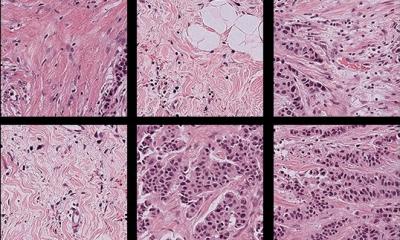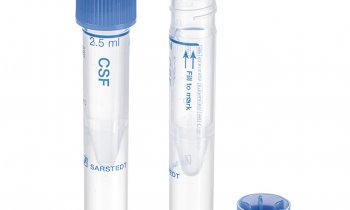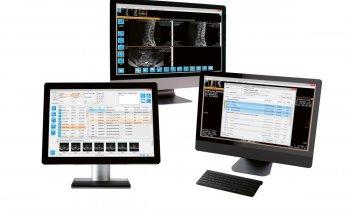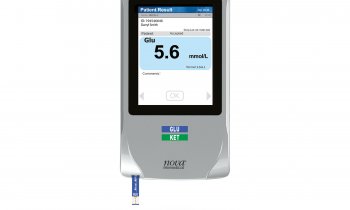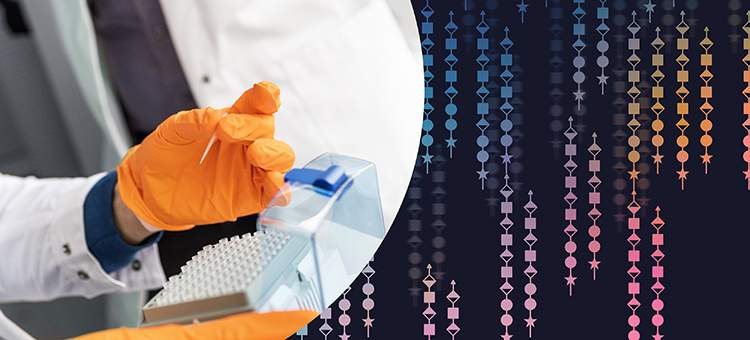
Photo: Elypta AB, Graphic illustration: Toby Logan
News • MCED test
Groundbreaking new method for multi-cancer early detection
When cancer is detected at an early stage, the rates of survival increase drastically, but today only a few cancer types are screened for. An international study led by researchers from Chalmers University of Technology, Sweden, shows that a new, previously untested method can easily find multiple types of newly formed cancers at the same time – including cancer types that are difficult to detect with comparable methods.
Cancer is one of the deadliest diseases in the world and is more difficult to cure when detected at a late stage. Finding effective methods for early detection of several types of cancer at the same time, so-called Multi-Cancer Early Detection (MCED), is an emerging research area. Today’s established screening tests are cancer type-specific, which means that patients need to be tested for each cancer type separately. Emerging MCED tests under development are usually based on genetics, for example measuring DNA fragments from tumours circulating in the blood. But DNA-based methods can only detect some types of cancer and have limited ability to find tumours at the earliest stage, so called stage I.
The method makes it possible to find cancer types that are not screened for today and cannot be found with DNA-based MCED tests, such as brain tumours and kidney cancer
Francesco Gatto
Now, in an international collaboration, researchers from Chalmers have developed a new method for multi-cancer early detection that is instead based on human metabolism. The results, which have been published in the scientific journal PNAS, uncover new opportunities for cheaper and more effective cancer screening. In a study totalling 1 260 participants, the researchers first discovered that the new method could detect all 14 cancer types that were tested. Next, they showed that twice as many stage I cancers in asymptomatic healthy people can be detected with the new method compared to the emerging DNA-based MCED tests.
“This is a previously unexplored method, and thanks to the fact that we have been able to test it in a large population, we can show that it is effective in finding more stage I cancers and more cancer types. The method makes it possible to find cancer types that are not screened for today and cannot be found with DNA-based MCED tests, such as brain tumours and kidney cancer,” says Francesco Gatto, who is a visiting researcher at the Department of Biology and Biological Engineering at Chalmers and one of the study’s authors.
Recommended article

Article • Early detection approach
Multi-cancer blood tests could shake up screening
New tests can identify over 50 types of cancer and boost detection of traditionally elusive cancers from tumour DNA in blood, researchers showed at the ESMO congress in September. These multi-cancer early detection (MCED) tests in development can spot common cancer signals and predict where the signal comes from in the body, results from a prospective investigation suggest.
The method is based on a discovery by Dr. Francesco Gatto and Prof. Jens Nielsen at Chalmers almost ten years ago: that so-called glycosaminoglycans – a type of sugar that is an important part of our metabolism – are excellent biomarkers to detect cancer noninvasively. The researchers developed a machine learning method in which algorithms are used to find cancer-indicating changes in the glycosaminoglycans. The method uses comparatively small volumes of blood or urine, which makes them more practical and cheaper to use. “The fact that the method is comparatively simple means that the cost will be significantly low, ultimately enabling more people to have access to and take the test,” says Francesco Gatto.
In the next step, the researchers hope to be able to conduct a study with even more participants to further develop and confirm the method’s potential for screening use. “This is a ground-breaking study that gives us hope that one day society will be able to create screening programmes that can detect all cancer types early,” says Francesco Gatto. “To be able to find more cancer cases early, we know that new tools are needed. These results are very promising because of the demonstrated higher sensitivity across more types of cancer at stage I, using a cost-efficient and accessible technology,” says Dr. Eric Jonasch, MD, Professor at The University of Texas MD Anderson Cancer Center and co-author of the study.
Source: The Swedish Research Council
07.12.2022




